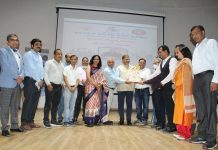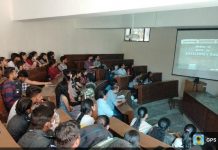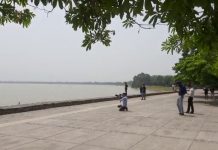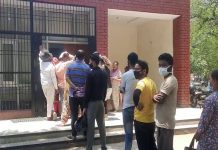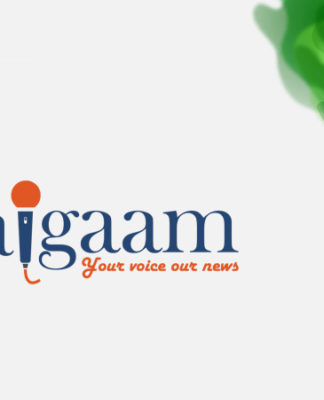SRINAGAR, OCTOBER 13: Secretary, Social Welfare, Cooperatives and Tribal Affairs, Dr Farooq Ahmad Lone, chaired a meeting of officials of Tribal Affairs Department to review the progress of construction of Milk Villages for Scheduled Tribes (ST) in the State.
The meeting was attended by Director Tribal Affairs Mohammad Rafi, Director Finance Dr SK Sen, Special Secretary M S Choudhary, Deputy Secretary Vivek Modi, Assistant Director Sushil Gupta and other concerned officials of Tribal Affairs Department.
The meeting was informed that the Union Government, in the year 2016-2017, approved two villages as Milk Village; one at Agri Rajouri and another at Sangerwani at Pulwama. Being constructed at the cost of Rs 4 crore each, these Milk Villages will be of great significance to the ST population. Under this scheme 150 beneficiaries will be given a cow, free of cost, a milk society will be formed, feed and medical unit for animals will be established and people will get more benefits.
While calling it a scheme of greater significance for the ST people on ground level, Dr Lone said that the department is proposing five additional Milk Villages, this year, to the Government of India.
While promising his full support to the department, Dr Lone asked the officials to work with dedication and make these schemes a huge success so that the people at ground level are benefited.
Later, Dr Lone also reviewed the progress of Tribal Research Institute (TRI) with regards to its construction and the research program through various investigators of the State University.
It was informed that the TRI is being constructed at Khimber Harwan in Srinagar and its construction work is in progress. For the construction purpose, he said, an amount of Rs 2.90 crore has been released in favour of its executing agency, PWD (R&B).
The aim of this scheme is to focus on the development and preservation of tribal cultural heritage besides providing inputs for evidence-based planning and appropriate legislations, capacity building of tribals and institutions associated with tribal affairs, dissemination of information and creation of awareness. It is pertinent to mention that the total ST population of J&K is 14,93,299 which constitutes 11.91 percent of the total population of State.
Director Tribal Affairs informed the meeting that under this scheme, Research and Documentation work is in progress by the various investigators of the State universities. He said, the work on seven projects is being carried on, and the amount of Rs 50 lakh has been released in 2017-2018 for this work.
The project titled “Research and Documentation of Gujjars and Bakerwals (ST’s) of J&K” is being prepared by Baba Ghulam Shah Badshah University, Rajouri while as University of Jammu is working on “Seasonal Migration and Human Development: A study of Bakerwals in J&K”.
Central university is working of two projects: “Migration of Bakerwals from one place to another in ten districts of Kashmir division: problems and their remedial measures” and “Migration of Bakerwals from one place to another in ten districts of Jammu division: problems and their remedial measures.”
Islamic University of Science and Technology, Awantipora is also working on two projects: “Impact of Urban education complexes on education of scheduled tribes in J&K” and “Mapping and documentation of traditional sports in Ladakh region.”
Sher-e-Kashmir University of Agriculture, Science and Technology, Kashmir is working on “Capacity building and awareness training programme in eco-tourism for tribal youths of Jammu and Kashmir – an initiative.”












